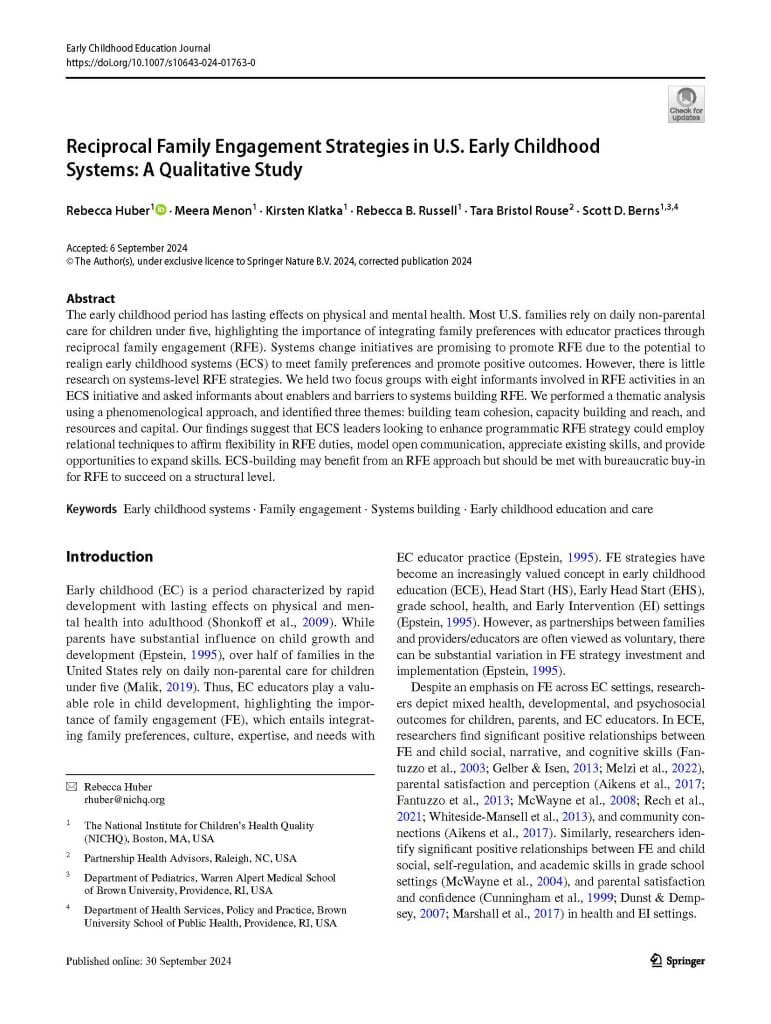Reciprocal Family Engagement Strategies in U.S. Early Childhood Systems: A Qualitative Study
Early Childhood Education Journal
Abstract
The early childhood period has lasting effects on physical and mental health. Most U.S. families rely on daily non-parental care for children under five, highlighting the importance of integrating family preferences with educator practices through reciprocal family engagement (RFE). Systems change initiatives are promising to promote RFE due to the potential to realign early childhood systems (ECS) to meet family preferences and promote positive outcomes. However, there is little research on systems-level RFE strategies. We held two focus groups with eight informants involved in RFE activities in an ECS initiative and asked informants about enablers and barriers to systems building RFE. We performed a thematic analysis using a phenomenological approach, and identified three themes: building team cohesion, capacity building and reach, and resources and capital. Our findings suggest that ECS leaders looking to enhance programmatic RFE strategy could employ relational techniques to affirm flexibility in RFE duties, model open communication, appreciate existing skills, and provide opportunities to expand skills. ECS-building may benefit from an RFE approach but should be met with bureaucratic buy-in for RFE to succeed on a structural level.
